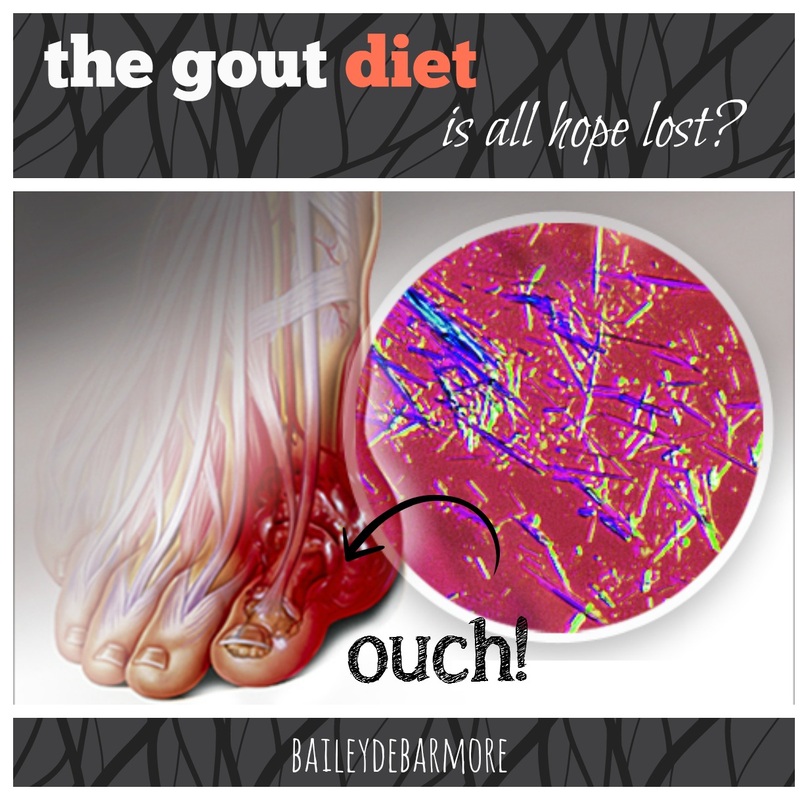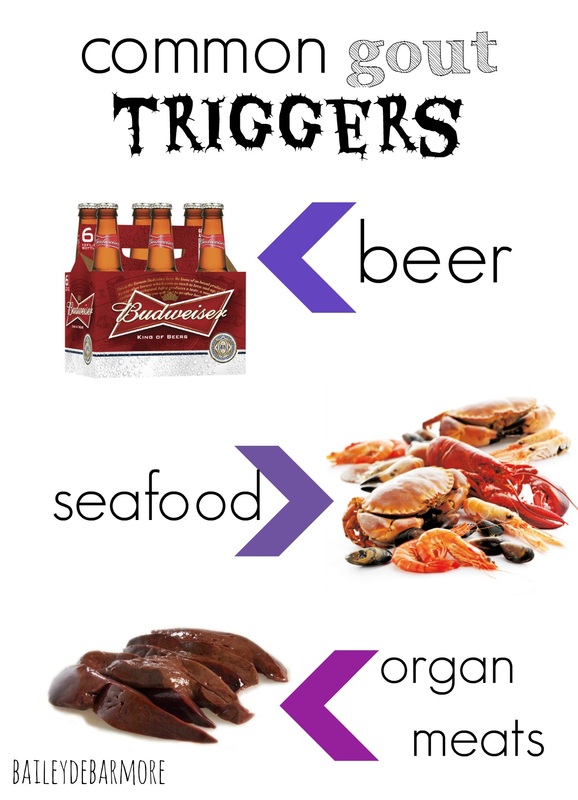Disclaimer: Always check with your doctor before making any changes to your medical treatment course. Bye-Bye Gout Flares in 1-2-3! 1) Pick and choose
2) Lose weight...gradually Obesity is a key risk factor for gout - that means you are more likely to experience gout attacks if you are severely overweight. On the flip-side, losing weight can help decreasing your flare-ups and perhaps get rid of them all together. Many fad diets (Atkins, Zone, South Beach, various cleanses) cut out food groups that lead to quick weight loss - mostly from water weight. But these diet plans are difficult to follow, and when you give-up and go back to your old ways, you typically gain more weight. With gout in the picture, these diets become even worse. The fasting state that these low-calorie and low-carb diets put you in actually makes your body produce its own uric acid. The Atkins diet actually discourages people with gout from following its program. So you're trying to lose weight so your gout gets better, but your body is actually making it worse! And that's because you aren't treating your body with the respect it needs by losing weight in a healthy, gradual manner. Following step 1: pick and choose will help to round out your diet and reduce the ingredients that were likely contributing to your weight gain as well as your gout flare-ups. Combined with regular exercise of your choosing, this healthy plan can become your new lifestyle, not just another phase in your life. 3) Step up the dairy Studies continue to show that consuming low-fat and fat-free dairy products (milk, yogurt, cheese) may lower your risk of gout. While this connection isn't definite, it also wouldn't hurt. Worried about lactose intolerance? Many people with lactose intolerance can tolerate 1-2 yogurts per day without getting upset stomachs. Do you love milk? Try LactAid or other low lactose milks instead. Say "No!" to Low-Carb Diets Caution: low carb diets (low in breads, fruit, grains, potatoes) and high in fats and meat are not good for gout. This is for two reasons:
I'm going to stop there, because I think that's pretty too the point. For tips on making healthy changes, check out my other blog posts on weight loss HERE. Signing off! -Bailey References:
(1) Mayo Clinic. Gout diet: What's allowed, what's not. 2012. http://www.mayoclinic.org/healthy-living/nutrition-and-healthy-eating/in-depth/gout-diet/art-20048524 (2) Lee SJ, Terkeltaub RA, Kavanaugh A. Recent Developments in Diet and Gout. Curr Opin Rheumatol. 2006;18(2):193-198. http://www.medscape.com/viewarticle/524766_6
1 Comment
Steve
8/25/2014 02:46:06 am
A good book on the subject of gout and dieting is Gout and You: The Ultimate Gout Diet & Cookbook which discusses how a diet high in complex carbohydrates is key to lowering uric acid levels in gout and should consist of 80% of our daily calories. Protein and fat should be limited to 10% each, our bodies don't need much protein to rebuild muscle and fat is the #1 killer in North America, our bodies can't cope with too much fat, it causes a lot of health problems. Carbohydrates burn clean, you can eat as much as you like and doesn't stress your organs like meats and fat. Makes sense!
Reply
Your comment will be posted after it is approved.
Leave a Reply. |
a blog about health, wellness, nutrition, and fitness from an epidemiologist / dietitian with personal trainer experience
Stay up to date on productivity tips and active learning techniques
Like what you read?
categories
All
|




_250px.png)



 RSS Feed
RSS Feed
